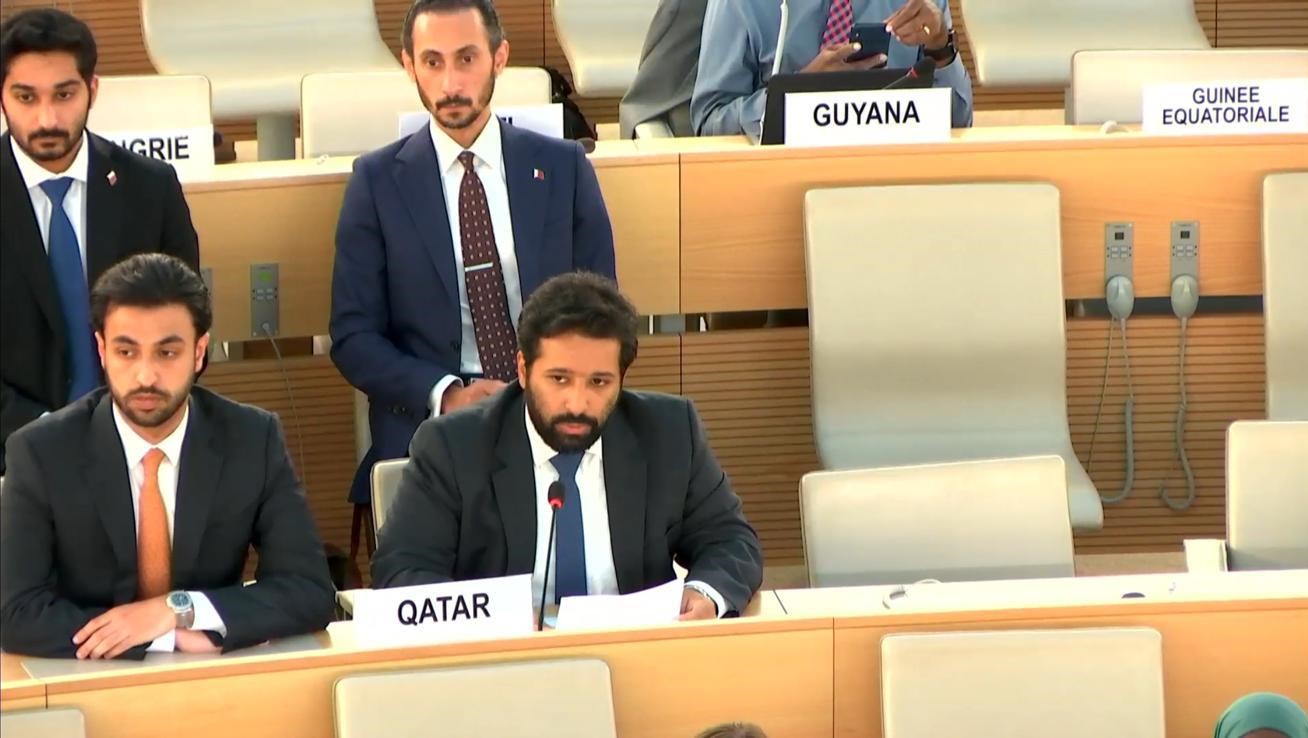Qatar Condemns in Strongest Terms Racism against Migrants, Muslim Minorities in Some Countries

Geneva - July 08, 2024
The State of Qatar affirmed its stance rejecting and opposing all forms of racism, racial discrimination, xenophobia, and related intolerance.
This came in the State of Qatar's statement delivered by Second Secretary at the Permanent Delegation of the State of Qatar to the United Nations Office in Geneva Sheikh Sultan bin Khalid Al-Thani during the Interactive Dialogue with Special Rapporteur on contemporary forms of racism, racial discrimination, xenophobia, and related intolerance, part of the 56th session of the Human Rights Council.
Sheikh Sultan bin Khalid Al-Thani said that racism and racial discrimination remain among the worst human rights violations known to humanity, due to their direct impact on human dignity, life, and security, adding that hate speech and discrimination, which incite hostility and violence against those belonging to ethnic or religious minorities, remain the most dangerous in terms of impact on society and individuals enjoyment of all human rights.
He expressed the State of Qatar's condemnation in the strongest terms of the continued racist practices toward the refugees, migrants, and Muslim minorities in some countries, and the harassment against them by various means, including legislative measures and government policies, done solely on the basis of their ethnic origin and religious affiliation.
Fueled by hate speech from some politicians and far-right party leaders, social media and various digital platforms, these practices, he explained, would fuel feelings of hostility and violence against these groups and lead to their social alienation, which in turn result in further violation of their rights and freedoms.
The State of Qatar's statement called on the Human Rights Council and all governments and relevant stakeholders to counter these discriminatory and racist practices by all means and take the necessary effective measures to eliminate them, along with holding those responsible accountable, and ensuring that such practices are never repeated.

